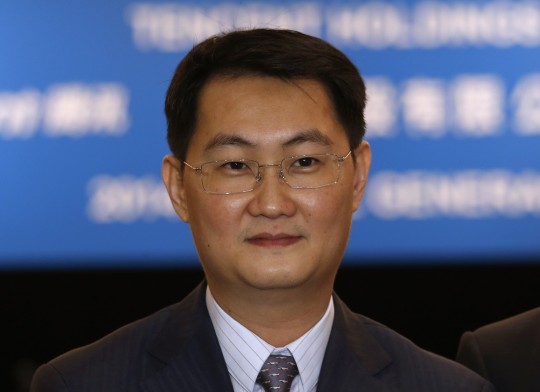China’s Tencent profited off fraudulent federal COVID relief program loans, according to court records reviewed by the Washington Free Beacon.
The court records reveal that Tencent co-owned one of the main investors in Womply, a San Francisco startup that raked in $2 billion in 2021 by helping businesses get expedited Paycheck Protection Program loans—and which was accused of profiting from "rampant fraud" in the application process.
Tencent, which also owns WeChat and a large stake in the parent company of TikTok, has faced scrutiny by the U.S. government over national security risks. In 2021, the Trump administration issued an executive order banning transactions with Tencent due to its connections to the Chinese government. President Joe Biden rescinded the ban after taking office, but ordered a security review of the company's apps.
Tencent’s financial ties to Womply could raise new questions about abuse of the PPP program, despite efforts from lawmakers to prevent foreign entities from profiting. The Small Business Administration, which oversaw the disbursement of nearly $800 billion in taxpayer funds throughout the pandemic, estimates that more than $200 billion was awarded to "potentially fraudulent actors," according to a June inspector general report.
"Congress approved Paycheck Protection Program loans to prevent a recession from huge wave of layoffs—not to send taxpayer dollars to China," said Gabriel Noronha, a former State Department official who now serves as the executive director of the Polaris National Security think tank. "It’s unacceptable that the parent company of TikTok is making money off government fraud—especially when we’re in the middle of increasing debt and national security crises."
The news comes less than a year after the House Select Subcommittee on the Coronavirus Crisis released a report detailing Womply’s failures to weed out blatantly bogus loan applications. Another investigation found that the company helped fast-track loans for fraudsters who used photographs of Barbie dolls and other false documentation to apply for the federal relief funds, according to the Messenger.
The findings led the Small Business Association, the agency that oversaw the PPP program, to suspend its work with Womply earlier this year.
Womply was founded by Toby Scammell, who was convicted of insider trading in 2014. The company "was responsible for handling eligibility and fraud verification for over a million PPP loans" from applicants looking to fast-track the process.
Womply pulled in over $2 billion in fees through its PPP work. But Womply’s lending partners told congressional investigators that the company’s fraud prevention practices appeared to be "put together with duct tape and gum," allowing "rampant fraud" into the PPP program.
Police also intercepted messages between gang members in Florida telling each other that Womply was "really hittin’" and that "everybody in the hood" was using it. Gang members reportedly used PPP loans to fund their drug trafficking operations.
Tencent, which is partially owned by the Chinese government, had a financial stake in Womply through Japanese e-commerce giant Rakuten. Tencent bought a 3.4 percent stake in Rakuten in April 2021, making it the fourth largest co-owner and reportedly raising alarms with Japanese and U.S. officials concerned about Chinese espionage.
Rakuten was one of three "major investors" in Womply in 2020 and 2021, pouring $15 million into the company, according to court records reviewed by the Free Beacon. The two other investors were Maris Capital and Sageview Capital. Rakuten executive Naseer Mandozai sat on the Womply board at the time.
Rakuten received profits from Womply during a liquidity event at the end of 2021, according to the court records.
Womply, Tencent, and Rakuten did not respond to requests for comment.
